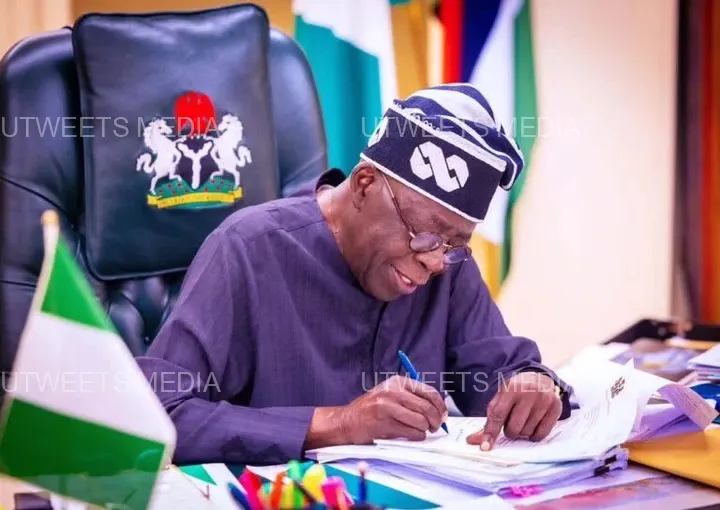The North-West Zonal Coordinator of the National Centre for the Control of Small Arms and Light Weapons (NCCSALW) retired Air Vice Marshal Haruna Muhammad, stated that President Bola Tinubu’s signing of the Small Arms and Light Weapons (SALW) Bill on June 4, 2024, aims to bolster national security.
This action has also provided the centre with a robust legal framework to intensify its efforts against the illicit arms trade.
Speaking at the first ‘Stakeholder Sensitization Workshop’ organized by the NCCSALW North-West Zonal Office in Kaduna, following the recent signing of the NCCSALW Establishment Act 2024, Muhammad reaffirmed the centre’s commitment to combating the proliferation of illicit small arms and light weapons in Nigeria.
The News Agency of Nigeria (NAN) reports that the workshop was themed ‘Addressing Challenges of Retrieval of Small Arms and Light Weapons after Recovery and Court Judgment.’ It focused on the critical need for a unified process for handling forfeited weapons after court judgments.
Muhammad emphasized that the proliferation of SALW has been a significant threat to Nigeria’s peace and security, fueling terrorism, ethnic conflicts, banditry, and organized crime over the past two decades. He noted that the NCCSALW, established in May 2021 under former President Muhammadu Buhari, is a key component of Nigeria’s national response to this growing menace.
He called on stakeholders, including the Armed Forces, Police, Judiciary, and other security agencies, to continue supporting the centre’s mandate. He stressed that success in the fight against SALW proliferation requires collective efforts and collaboration with international partners.
In his presentation, Kamal Badamasi highlighted the key drivers of arms proliferation in Nigeria, including poverty, unemployment, and ethnic crises. He traced efforts to curb the menace back to 1998, emphasizing that stakeholders must remain proactive in addressing the root causes.
Deputy Commissioner of Police Muhammad Shamsuddin, while speaking on the Control of Small Arms and Light Weapons Act 2024, explained that the act strengthens Nigeria’s institutional capacity to regulate and monitor the possession and manufacture of small arms. He noted that the act aims to enhance enforcement mechanisms and border security to curb illegal arms trafficking, aligning Nigeria with global standards.
“The Act addresses the challenges posed by insurgency, terrorism, banditry, and all forms of armed violence,” Shamsuddin said.
Stakeholders at the workshop reaffirmed their commitment to supporting the centre’s efforts. They also called for increased funding, specialized units, and enhanced collaboration to ensure the successful implementation of the act and the safety of all Nigerians.
The Small Arms and Light Weapons Control Act 2024 aims to tackle the proliferation of illicit arms in Nigeria with a comprehensive legal framework. It mandates the establishment of structures for registration, monitoring, and retrieval of small arms, while also empowering security agencies to enforce stricter regulations on the manufacture and distribution of firearms.
This act aligns with international agreements like the ECOWAS Convention on Small Arms and Light Weapons and the United Nations Programme of Action on Small Arms, to which Nigeria is a signatory. The new law strengthens border controls, enhances cooperation among agencies, and promotes international partnerships to combat illegal arms trafficking.
For this act to be effective, it will require not only solid legal structures but also strong political will and sufficient resources for enforcement. By addressing both the supply and demand for illicit arms, Nigeria aims to create a safer environment and reduce the threat of armed violence across the country…Read the full content from the source

